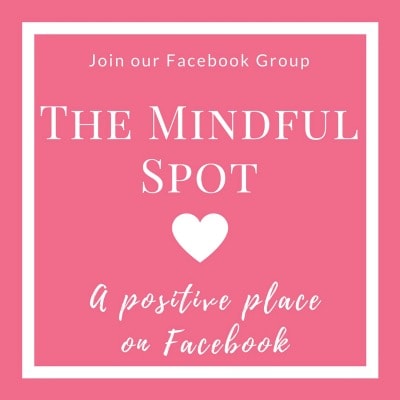How often have you heard, Life is about the journey, not the destination?
As a mindfulness teacher, I’m sure I have told you this myself. It is a spiritual truth that reminds us to live in the present moment and not treat life as a giant competition full of winners and losers. But it’s possible to take this advice too far and completely lose sight of your destination. Here are two stories, an Indian parable and anecdote about the great American poet Robert Frost, that challenge that conventional wisdom. After all, we are seekers, not mere wanderers. Once you find your life’s purpose, you don’t want to lose track of it.
[clickToTweet tweet=”Once you find your life’s purpose, you don’t want to lose track of it.” quote=”Once you find your life’s purpose, you don’t want to lose track of it.”]
An Indian Parable
When I lived in India, Master-ji shared this parable with me one night during Satsang:
There was once a famous meditation teacher who was considered the best in all the land. All of his students were remarkable, but one stood out from the rest. His yoga postures were beautiful. He could sit perfectly still for hours upon hours as his mind sank into deep levels of absorption. His fellow students believed that one day he would surpass their master.
When it was time, his teacher sent him off to study at a monastery, as was the tradition. There he would study, meditate and learn all that he could. After seven years, he would return and share the wisdom he had gained. While this student was away, he was not forgotten. His peers often spoke of him and eagerly awaited his triumphant return. When he didn’t return after seven years, they were concerned. Finally, on the seventeenth anniversary of his journey, he came back. His teacher assembled everyone together to listen to what he had learned.
“At first I wandered high in the mountains,” the student shared with a hint of pride. “There was a great river that I had to cross in order to reach the monastery. Everyday a boatman took people across the river for a fare of three rupees. I stayed with the boatman in his hut near the river. Everyday I practiced the yoga and mediation I learned here. Then I would practice walking on water for hours. It was very difficult, but after a few years, I could walk five meters. Every year, I was able to go a little bit further until I finally was able to cross the entire river.”
His classmates dropped their jaws in astonishment, but his teacher remained silent for some time. Finally, with kind eyes, he spoke, “You know, you could have just paid the boatman three rupees and saved yourself ten years?”
Like all parables, this story left me a bit perplexed and unsatisfied. I grasped the message, but part of me wanted to argue against it. Why wasn’t the student’s accomplishment valuable? Hadn’t he increased his concentration and meditative abilities in the same way he would have in the monastery? Isn’t life supposed to be about the journey, not the destination, as we’re often told?
My teacher elaborated, “If you don’t like the path your on, don’t blame the path. Blame yourself for choosing the difficult path.”
[clickToTweet tweet=”If you don’t like the path your on, don’t blame the path. Blame yourself for choosing the difficult path.” quote=”If you don’t like the path your on, don’t blame the path. Blame yourself for choosing the difficult path.”]
The True Story of The Road Not Taken
That reminded me of another story, one my American Literature professor shared with my class when we were studying Robert Frost.
“Everyone loves the poem, The Road Not Taken. It’s an iconic American poem, but not very many people know the true story behind it. One day Frost went on a long walk with his friend. At one point, they came to a fork in the road. His friend hemmed and hawed over which path to take. Frost got frustrated at his indecision. He went home and wrote The Road Not Taken as a sarcastic tease to his friend.”
Upon hearing that, the poem I had memorized and sang in harmony in the Eighth Grade Concert Choir became laughable. It wasn’t deep; it was funny.
Flipping Conventional Wisdom on its Head
Both of those stories have lingered in my heart for more than a decade, while so many others quietly drifted out of my mind’s reach. They counter contemporary spiritual axioms I hold dear:
- Life is about the journey, not the destination.
- Everything happens for a reason.
- Many paths lead to the same place.
I believe those truths, but paradoxically, what if their converses were also true? What if sometimes the destination matters more, and we should make our journey as light and easy possible? What if things happen because they happen and we should just accept them and move on quickly? What if the reason things happen just boils down to the choices we make?
[clickToTweet tweet=”What if sometimes the destination matters more, and we should make our journey as light and easy possible?” quote=”What if sometimes the destination matters more, and we should make our journey as light and easy possible?”]
At the end of every yoga practice in the Ashtanga tradition, we flip ourselves upside down for the inverted poses. These are the postures where your heart is above your head, for example, a headstand. All of these postures reverse the flow of gravity in the body, require a different form of balance and completely change your perspective, bringing up down and down up. These postures leave both the body and mind keenly refreshed.
Change Your Vantage Point Every Now and Then
- Do I make my life more difficult than it needs to be?
- Do I hold on to certain ideas about the way the world is, rather than accept it as it truly is?
- Am I paying so much attention the to minutia of my journey that I have lost sight of my destination?
- Am I wasting time agonizing over a choice when I should really just move past it?
The other day I flipped through the journal I took to India. My scratched up red notebook contains scribbled Sanskrit mantras, favorite recipes from Lakshmi, teacher training notes, lessons from my teacher, as well as my own thoughts all scrambled together in one glorious mess. Every line is full.
In rereading this journal, my teacher’s wise words leapt off the page and burrowed straight into my heart. My own thoughts and impressions seemed rather juvenile to me. While I always showed Master-ji the utmost respect in person, I silently argued against some of his uncomfortable lessons in my journal. A part of me always knew this would be the case. Although I struggled to accept some of Master-ji’s wisdom at the time, I carefully transcribed every word for future understanding.
It is time to pay the boatman.










I’m so happy Janine. I’d like to invite you to join our Mindfulness Facebook Group. It’s a supportive community devoted to mindfulness and happiness.
You’re welcome.
I’m glad that this piece spoke to you, Jenni. I think we all have those struggles.
Thank you. I feel very fortunate that I was able to travel so far so often. Although I’m home bound with little ones now, I look forward to traveling in the future. It’s amazing how travel stays with you long after you come home.
Yes. It’s all about a shift in our perspective. Thank you for your kind words.
Thank you for sharing your insights, Meg. I struggle with decisions too, but I’ve learned sometimes it’s less about making the right choice and more about moving forward. Take care.
Thank you!
So thoughtful!
I have long loved The Road Not Taken, but not for the reason that most people do. I had never heard that background story of the poem before (which is awesome), but in college my lit professor pointed out that the poem is paradoxical because he says that both paths are equal half way through, but at the end he says he took the road less traveled by. So, it’s not so much taking the less popular path that matters, it’s just the fact that we HAVE to choose…and it will affect our lives “for knowing how way leads on to way, I doubted if I should ever come back.”. For someone like me who struggles to make decisions (I’m probably a bit like Frost’s friend), this interpretation is important. Thanks for sharing!
Lovely post. I especially like the idea of changing your vantage point every once in a while.
What a blessing for you to learn from the people that you have and to visit the cultures that have increased your wisdom and experience! Loved this post – thank you!
This was a great read, it’s so important not to hold onto negative or difficult things, but to accept it as it truly is. Still, something I struggle with on a daily basis, so reading your posts are good reminders about the journey and beauty of life 🙂
Lovely and meaningful piece. I am in the process of looking for a mindfulness therapist or someone for advice as we are about to embark on a life-changing decision. This really hit home. Thank you.
I learned so many new pieces of information in this post! Thank you for that! All great points.
I’m so happy you connected with it, Kirstie! Good luck with your book!
Thank you! I appreciate your kind words.
I struggled with that for a while too. I think that just drawing awareness to it will allow for a natural change. If you want, please consider joining our Facebook group, The Mindfulness Movement. It’s a great community to support a simple, mindful lifestyle and a positive attitude. https://www.facebook.com/groups/themindfulnessmovement/
Wow this is good. Something to really think about.
The Road Not Taken is my favorite poem and always in the back of my mind. I definitely struggle with blaming things/people/situations for my unhappiness/struggles. I am in great need of simplification and a different perspective.
I enjoy reading this post.It gives me a wake up call of what life is about.Its not just a destination but a journey and you wrote it beautifuly
This is an amazing post. I’m at the same spot right now – learning to empower myself enough to “get in the flow” of life in order to accomplish a major goal related to my purpose – that is finishing my first book. Life is so busy, and I definitely put it on the back burner. This article is a great reminder to get my behind in gear and refocus!
What an amazing post with so much wisdom! Thanks for sharing!